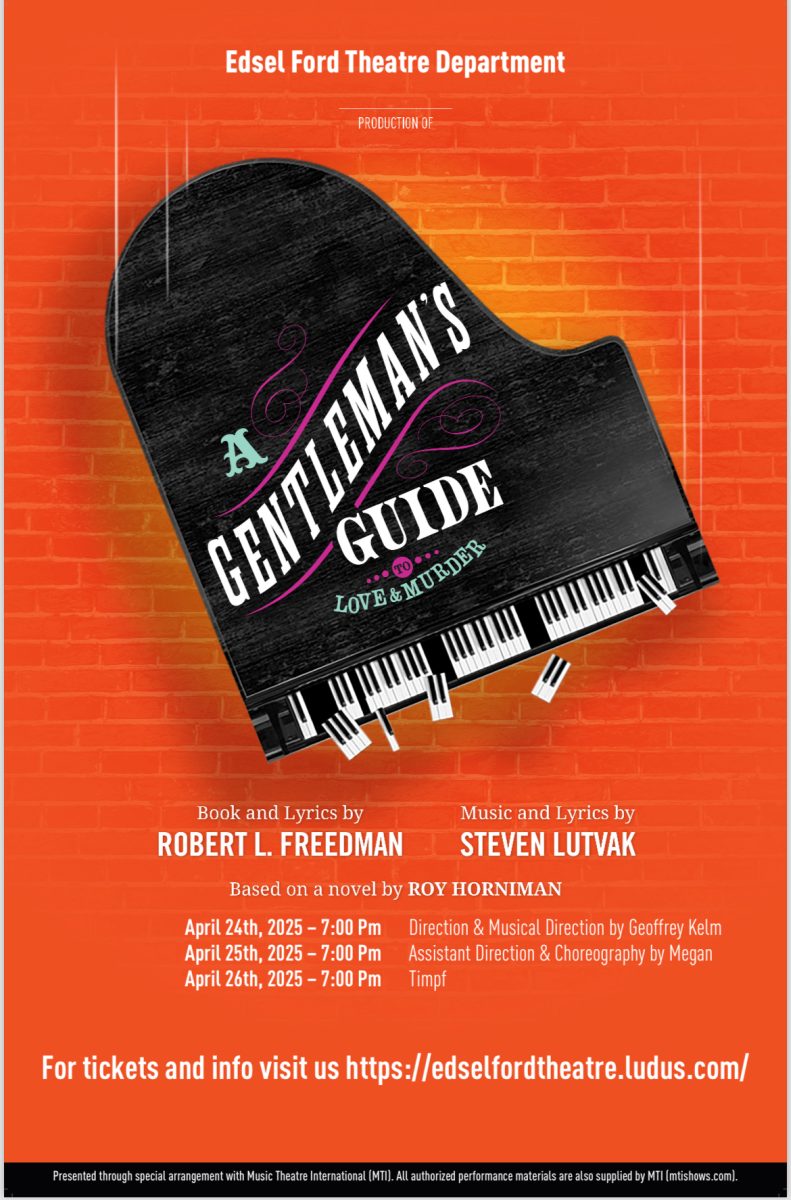The Theatre Department’s newest production, Robert L. Friedman and Steven Lutvak’s A Gentleman’s Guide to Love and Murder, was one of its most ambitious productions to date, according to its directors.
“When we started this show, I genuinely had no idea how we were going to stage it,” wrote choreographer Megan Timpf in a letter published in the show’s Playbill pamphlet. “There are so many intricate components that must work seamlessly together. The continuous set changes, costume changes, and multitude of characters the actors have to take on are overwhelming for a professional company, let alone a high school production.”
Director Geoffrey Kelm expressed a similar sentiment at the end of the final showing: “We needed a little bit of luck,” he said, continuing to say that his luck lay in the cast and crew, whose dedication was the most important factor in finishing the production.
Indeed, the measures taken to maintain the rapid pace of set and costume changes in Gentleman’s Guide could be seen in its production. Scene transitions, for example, were executed via a rotating square set that could present one of four unique rooms to the audience at a time. The actors could move between a humble home, a grand hotel, and two aristocratic homes in seconds.

The costume changes, too, were performed efficiently; junior actor Matthias Herman, who played every member of the rich and powerful D’Ysquith family, changed personas with speed and ease. The show’s leading actor, senior Sterling Deller, made practical use of clothing layering to change his appearance between and during scenes, reflecting his character’s rapid ascent to wealth and respectability.
During production, these two goals—to perfect scene transitions and to perfect character versatility through acting—often came into conflict. The complex nature of constructing a massive set to be stable and functional often required the crew to spend more time on stage, reducing the time the cast had to rehearse their performances in a theatre environment.
Despite this risk, a balance was found; this is due to the work of the crew, such as Stage Manager Julia Tate, Assistant Stage Manager Nolan Sirrine, Student Technical Director Myrna Burkhalter, and House Manager Riley Warren, whose direction and communication to the wider crew facilitated an efficient construction process, as well as efficient execution of several side projects, such as moving unused materials into storage and deconstructing previous years’ sets.
Ultimately, the production was successful. On April 24th, 25th, and 26th, the Edsel Ford Theatre Department operated incredibly well, with the actors giving great performances and the work of the crew presenting itself in full.
For more information on the Theatre Department’s future and past productions, visit https://efhstheatre.carrd.co/.
















